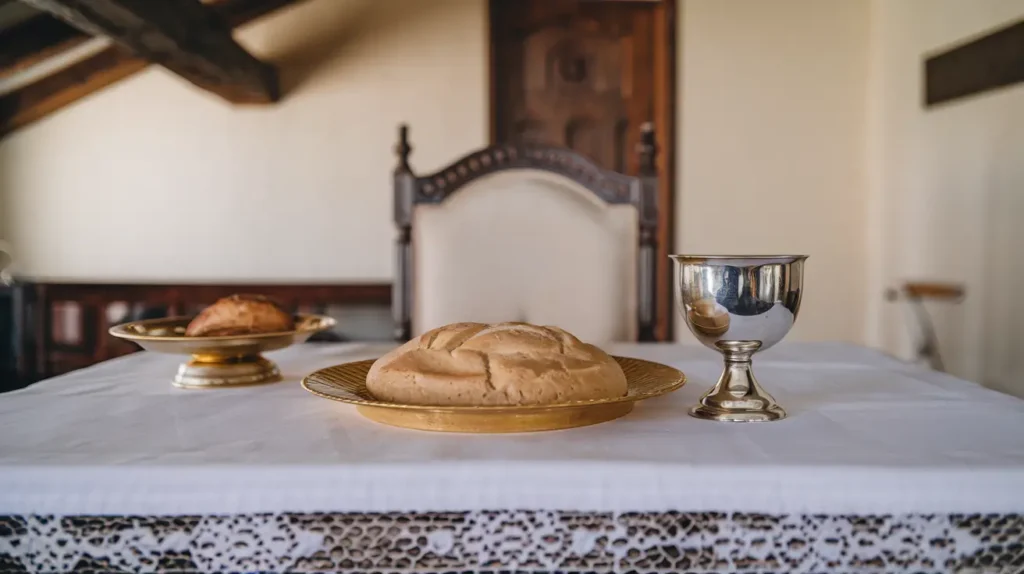The Role of Sacraments in End-of-Life Care
Introduction
End-of-life care is a profound journey that encompasses not only physical and emotional dimensions but also spiritual ones. In the Catholic tradition, sacraments play a vital role in providing comfort, hope, and grace to those nearing the end of their earthly life. They serve as tangible expressions of God’s presence and love, offering spiritual healing and preparing the soul for eternal life. This article explores the significance of sacraments in end-of-life care, highlighting their roles and the comfort they bring to the dying and their loved ones.
The Sacrament of Anointing of the Sick
Understanding the Sacrament
Formerly known as Extreme Unction or Last Rites, the Anointing of the Sick is a sacrament instituted for the spiritual and sometimes physical strengthening of a person who is seriously ill. It is not exclusively for those at the point of death but is intended for anyone facing a serious health challenge.
Purpose and Effects
- Spiritual Healing: Provides grace to endure suffering with courage and dignity.
- Forgiveness of Sins: Offers forgiveness if the person is unable to participate in the Sacrament of Reconciliation.
- Physical Healing: In some cases, may lead to physical recovery if it aligns with God’s will.
- Preparation for Passing: Helps prepare the soul for the journey to eternal life.
Administration of the Sacrament
A priest administers the sacrament by anointing the person’s forehead and hands with holy oil while reciting specific prayers. Family members are often present, providing a supportive and prayerful environment.
The Sacrament of Reconciliation (Confession)
Importance at the End of Life
The Sacrament of Reconciliation allows individuals to confess their sins and receive God’s forgiveness. At the end of life, this sacrament offers:
- Spiritual Cleansing: Removes the burden of sin, providing peace of mind.
- Renewed Relationship with God: Restores the individual’s relationship with God.
- Comfort and Peace: Alleviates fears and anxieties about death and judgment.
The Process
The priest listens to the confession, offers appropriate guidance, and assigns a penance. The sacrament concludes with the prayer of absolution, granting forgiveness.
The Eucharist as Viaticum
Definition of Viaticum
Viaticum, meaning “provision for the journey,” refers to the Eucharist administered to a person who is dying. It is considered the sacrament of passing over from death to life.
Significance
- Union with Christ: Provides the dying person with the body of Christ as spiritual sustenance.
- Strength for the Journey: Offers strength and comfort for the passage from this life to the next.
- Community of Faith: Connects the individual with the wider Church community.
Administration
A priest, deacon, or authorized extraordinary minister of Holy Communion may administer Viaticum. It often follows the Sacraments of Reconciliation and Anointing of the Sick.
The Role of Sacraments in Spiritual Preparation
Providing Hope and Consolation
Sacraments reassure the dying person of God’s infinite mercy and love. They offer hope in the promise of eternal life and alleviate fears associated with death.
Strengthening Faith
Receiving the sacraments can deepen the individual’s faith, enabling them to face death with trust in God’s plan.
Facilitating Letting Go
Through spiritual healing, the person may find it easier to let go of earthly attachments and reconcile with others.
Support for Families and Loved Ones
Shared Spiritual Experience
Participating in the sacraments can be a profound experience for family members, strengthening their faith and providing comfort.
Encouraging Open Communication
The sacraments can prompt meaningful conversations about faith, forgiveness, and final wishes.
Grief Support
Witnessing the peace and comfort the sacraments bring to their loved one can help alleviate the family’s grief.
The Role of Clergy and Pastoral Care
Providing Spiritual Guidance
Priests and pastoral caregivers offer guidance, answering questions about faith, suffering, and the afterlife.
Emotional Support
They provide a compassionate presence, listening to concerns and fears of both the dying and their families.
Continuity of Care
Clergy often continue to support the family after the death, assisting with funeral planning and bereavement counseling.
Practical Considerations
Timely Arrangement
It’s important to arrange for the sacraments early, especially if the person’s condition is deteriorating, to ensure they can fully participate.
Communication with Healthcare Providers
Inform medical staff of the desire to receive sacraments so they can accommodate visits from clergy.
Cultural Sensitivity
Respecting the individual’s cultural and personal preferences within the Catholic tradition enhances the meaningfulness of the sacraments.
Conclusion
The sacraments play a pivotal role in end-of-life care within the Catholic faith, offering profound spiritual benefits to the dying and their loved ones. They serve as channels of God’s grace, providing comfort, forgiveness, and hope. By embracing these sacred rituals, individuals can face the end of life with peace and dignity, supported by their faith and community. Families, too, find solace in these traditions, reinforcing their beliefs and strengthening their bonds during a challenging time.


